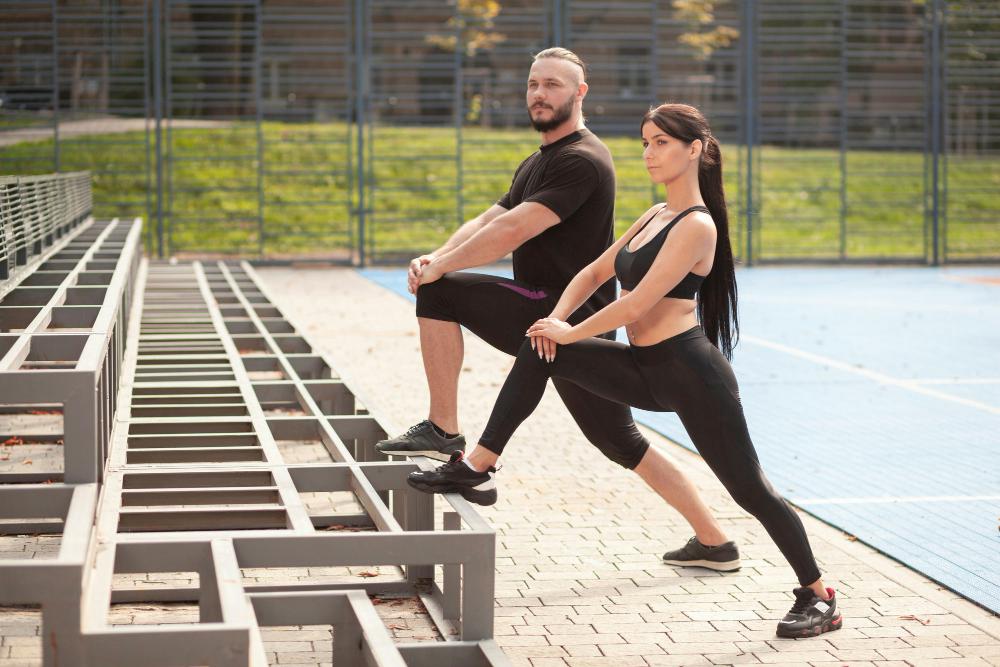Embarking on your first half marathon is an exciting adventure, but the key to success lies not just in the miles you run but also in the strength you build and the cross-training you incorporate. In this blog, we’ll unveil the details of how to prevent injuries through a combination of cross-training and strength exercises, guiding you toward a resilient and rewarding half marathon experience.
Understanding the Importance of Cross-Training:
1. Diversify Your Workouts: Incorporating cross-training activities, such as cycling, swimming, or elliptical workouts, helps reduce the repetitive impact on your joints and muscles, minimizing the risk of overuse injuries.
2. Enhance Cardiovascular Fitness: Cross-training contributes to overall cardiovascular fitness, allowing you to maintain endurance and stamina without solely relying on running. Choose different intensities and distance on each run. Ie: A sprint day, an interval day, a longer day, etc. A good rule of thumb is the 80/20 rule – only 20% of your workouts should truly push your threshold.
3. Active Recovery: Engaging in alternative activities on rest days provides active recovery, promoting blood circulation, and aiding muscle recovery without subjecting your body to continuous pounding.
Strategic Strength Training for Runners:

1. Focus on Core Strength: A strong core is the foundation for efficient running. Incorporate exercises like planks, Russian twists, and leg raises to build core stability.
2. Leg Strengthening Exercises: Target the muscles crucial for running, including quadriceps, hamstrings, and calf muscles. Squats, lunges, and calf raises are effective additions to your strength training routine.
3. Balance and Stability Training: Improve proprioception and reduce the risk of falls or twists by integrating balance exercises such as single-leg stands, stability ball exercises, and Bosu ball workouts.
4. Resistance Training: Utilize resistance bands or free weights to add resistance to your workouts, enhancing muscle strength and endurance.
Creating a Comprehensive Training Plan:
1. Balanced Weekly Schedule: Structure your training week to include a mix of running days, cross-training sessions, and dedicated strength training days.
2. Gradual Progression: Avoid sudden increases in mileage or intensity. Gradual progression allows your body to adapt and reduces the risk of overuse injuries.
3. Rest and Recovery: Prioritize rest days to allow your body to recover. Quality sleep, proper nutrition, and hydration are integral components of injury prevention.
Seeking Professional Guidance:
1. Consulting a Running Coach: Consider seeking guidance from a running coach or a fitness professional who can create a personalized training plan tailored to your fitness level and goals. On our staff, Dr. Andrea Smiley is a certified RRCA running coach. Reach out for details.
2. Physical Therapy Assessment: A pre-training assessment with a physical therapist can identify any potential weaknesses or imbalances, allowing for targeted injury prevention strategies.
Conclusion:
In conclusion, preparing for your first half marathon is not just about the miles you log but also about the strength you build and the cross-training activities you incorporate. By diversifying your workouts, focusing on strategic strength training, and creating a well-rounded training plan, you set yourself up for a resilient and enjoyable half marathon experience. Embrace the journey, prioritize injury prevention, and stride strong towards the finish line. Your first half marathon awaits, and with the right preparation, you’ll conquer it with strength and confidence.
And if you’re in Nashville or Franklin, TN, come visit us at Be Ready PT for all performance and injury prevention related to running and athletics!


